
SPEAKERS AND PANEL MEMBERS
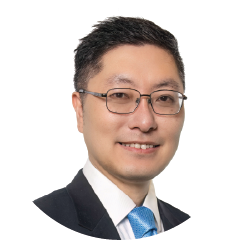
Chief Executive
Maritime and Port Authority of Singapore
Mr Teo Eng Dih was appointed Chief Executive, Maritime and Port Authority of Singapore from 5 September 2022. Prior to this, Mr Teo was Deputy Secretary (Policy) in the Ministry of Defence.
Mr Teo had served in various government agencies in the areas of Policy and Planning, Manpower, Strategy, Technology, Energy, Climate Change, Enterprise Services and International Trade. He was Special Assistant to then-Deputy Prime Minister Teo Chee Hean from 2016 to 2018.
He is a volunteer with SAFRA, an association looking after the needs of national servicemen.
He took up the Trade Development Board Scholarship in 1999 and obtained a Master's in Chemical Engineering with a Year Abroad (First Class) from Imperial College London. He was awarded the Fulbright Scholarship in 2012 and graduated with a Master in Public Administration from the Kennedy School of Government, Harvard University. Mr Teo attended the Eisenhower Fellowships Global Program in 2022.
For his contributions to Public Service, Mr Teo was awarded the Public Administration Medal (Silver) in 2021.
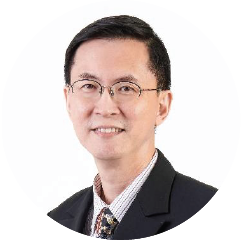
Assistant Chief Executive (Industry & Transformation)
Maritime and Port Authority of Singapore
Mr Kenneth Lim is the Assistant Chief Executive (Industry & Transformation) of the Maritime and Port Authority of Singapore (MPA) since 1 Jan 2021. Kenneth has built up a strong network of maritime Singapore industry players, including digitalisation and HR innovators of shipping companies and the startup community. He currently oversees the Transformation Office, International Maritime Centre, Business Capability Development, as well as Innovation, Technology, and Talent Development.
Kenneth was seconded from the Government Technology Agency (GovTech) in 2017 as Chief Technology Officer. In GovTech, he was the Cluster Director tasked with harnessing information and communications technology and related engineering for public sector transformation, covering 10 public agencies’ CIO teams.
Kenneth has over 25 years of technology-related experience, starting his career as a programmer in PSA, and becoming Vice President of Technology Development, Trade & Logistics in CrimsonLogic, and Senior Vice President in the Energy Market Company before joining the public sector in 2011. His professional experience covers sectors in the Sea Port, Logistics IT, and Energy industries.
Kenneth was awarded the “Supply Chain Asia – Visionary of the Year” in 2019 and is a frequent speaker at many conferences and events advocating digitalisation. He was also awarded the “The Public Administration Medal (Silver) (COVID-19)" in 2022 for his outstanding contributions to Singapore's fight against COVID-19 and the Public Administration Medal (Silver) in 2024 for his contributions to the maritime industry.

Programme Director, Data-Centric Engineering, The Alan Turing Institute; and
Professor of Data-Centric Engineering in the Maritime Engineering group
University of Southampton
Professor Adam Sobey is Programme Director of Data-Centric Engineering at The Alan Turing Institute and Professor of Data- Centric Engineering in the Maritime Engineering group at the University of Southampton. He is also a Non-Executive Director at Theyr Ltd, a MetOcean and Voyage Optimisation Software provider, and at AQ, provide tools for Digital Assurance.
Professor Sobey completed his degree in Astronautics at the University of Southampton in 2006 and his PhD in the Maritime Engineering group in 2010 using AI in the design of leisure boats. From 2009 he managed the Lloyd’s Register/Ministry of Defence Centre of Excellence in Marine Structures at Southampton, developing new techniques to model damaged ships. This research was incorporated into Lloyd’s Register’s design guidance and in 2015 he was awarded the Royal Institution of Naval Architect’s Jeom Paik Award for stochastic analysis of ship structures. In 2014, he became a Lloyd’s Register Educational Trust funded Research Fellow with 50% of his time seconded to the Institute of High Performance Computing in Singapore, developing novel algorithms in Evolutionary Computation. In 2015 he was a co-Investigator for the University of Southampton Lloyd’s Register Foundation University Technology Centre in “Ship Design for Enhanced Environmental Performance”. He became a lecturer in the Maritime Engineering group in 2018 and was asked to start a team in Marine and Maritime within the Data-Centric Engineering programme at The Alan Turing Institute in 2019. He became the first Professor in Data- Centric Engineering in 2022 and Programme Director for Data-Centric Engineering in 2023, leading a 10-year renewal of the programme from Lloyd’s Register Foundation. He is an Executive Editor for the Data-Centric Engineering Journal and Ships and Offshore Structures and on the Management Board for the MoD/EPSRC Complex Integrated Systems for Defence and Security, aimed at providing 60 PhD students with the skills to support the UK defence sector.
Professor Sobey is interested the development of Artificial Intelligence and Machine Learning approaches with applications in Engineering, particularly focused on reducing emissions and improving safety. His fundamental research has been used within 4 products reducing emissions on over 2000 vessels globally.
AI is rapidly changing the world. There are new tools and methodologies, which are creating new businesses and changing the way in which current businesses operate. In maritime alone, the industry has gone from it being a relatively limited tool set to $1.47 billion in 2023 and now has an estimated market value of $4.13 billion in 2024 with a projected growth rate of 23% compound annually. In this talk, Adam will outline his research developing novel AI and the transition to industrial applications in Maritime. He’ll also discuss some of the future trends within the Data Science, Machine Learning and AI and where future development is still required.
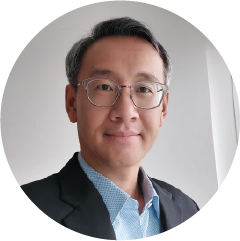
Senior Deputy Director (Multi-Domain Capability Development Hub)
Maritime and Port Authority of Singapore
Dr Daniel Tan received the Ph.D. degree from the University of California, San Diego and Scripps Institution of Oceanography. He has more than 20 years of Research and Development work experience with deep expertise and broad technical knowledge of satellite data intelligence and assimilation, algorithms, sonar, computation ocean acoustics, metocean science, digital twins, underwater comms, artificial intelligence and robotics. He is a Senior Deputy Director of the development of multi-domain capabilities from space, air, sea, subsea, cyber, and sustainability domains for the future Integrated Operations Hub in the Maritime and Port Authority of Singapore. His previous roles include R&D Master Planner for Maritime Systems in the Ministry of Defence, Singapore and Principal Research Scientist at DSO National Laboratories.

Lead Architect
Microsoft Innovation Hub ASEAN
Ujjwal Kumar is the Lead Architect at Microsoft Innovation Hub ASEAN, focusing on Azure, AI, security, sustainability, and emerging technologies (AI/ML, Quantum Computing, Industrial Metaverse, Blockchain, Digital Twins). With over 21 years of diverse technology experience, Ujjwal has played a pivotal role in accelerating digital transformation for key industries, including maritime. He has led strategic projects with key customers and industry leaders such as SIA, Surbana Jurong, JERA, Schaeffler etc.
As a thought leader in digitalization and digital transformation, Ujjwal’s expertise spans across ideation, architecture, and rapid prototyping, driving innovation with strategic customers and partners. He holds a master’s degree in IT Leadership from National University of Singapore, alongside professional certifications from Delft University, INSEAD, and MIT. Currently, he is pursuing a PhD at the University of Antwerp, with a focus on sustainable maritime ports and logistics operations.
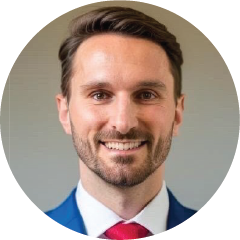
Head of Industries, Asia Pacific
Amazon Web Services (AWS)
Dr Manuel Baeuml is the Head of Industry for Amazon Web Services (AWS) and leads Manufacturing, Retail, and Supply Chain across Asia Pacific. Manuel and his team are responsible for helping AWS customers to define their digital strategies and deliver business outcomes using cloud computing. Over the last 15 years, he has had the privilege to work with industry leaders in Asia Pacific and Europe to develop and implement digital transformations. He brings along deep experience in the maritime industry and has served several Ocean Freight liners and Freight Forwarders throughout his career. Prior to joining AWS, Manuel was the Head of Transformation for Luxasia, led the Digitalization of the Freight Industry Service Line for McKinsey in Germany, and started his career with DHL.
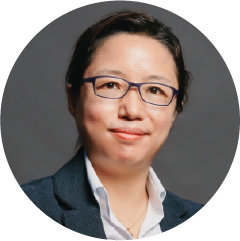
Senior Principal Scientist II and Director of Maritime AI Research Programme,
Institute of High Performance Computing, A*STAR
Dr Fu Xiuju is the Director of the Maritime AI Research Programme and Senior Principal Scientist at the Institute of High Performance Computing, Agency for Science, Technology and Research (A*STAR) in Singapore. With expertise in AI, big data intelligence, simulation, and optimisation techniques, she focuses on advancing complex system management and enhancement. Recognised for her contributions, she was honoured as an SMI Fellow in 2023. Currently, she spearheads the Maritime AI Research Programme in Singapore, driving research and development initiatives in maritime data excellence, AI modelling excellence, maritime AI computing, and application excellence. Her efforts aim to foster the development and application of AI in the maritime industry.
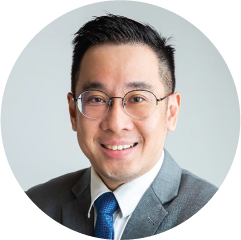
Director (Innovation, Technology & Talent Development) and Chief Transformation Officer
Maritime and Port Authority of Singapore
Mr Ng Yi Han is the Director of the Innovation, Technology and Talent Development (ITTD) Division and Chief Transformation Officer in the Maritime and Port Authority of Singapore (MPA).
Prior to his current role, he was in the Sea Transport Division under the Singapore Ministry of Transport overseeing maritime policies and programmes. Yi Han graduated with a bachelor’s degree in Computer Engineering under the National University of Singapore and holds an MBA from the Massachusetts Institute of Technology. His experience covers R&D promotion, manpower development and strategic planning.

Head, Department of Industrial Systems Engineering and Management
College of Design and Engineering, National University of Singapore; and
Research Track Leader, Centre for Maritime Studies
Ng Szu Hui is Associate Professor and Head at the Department of Industrial Systems Engineering and Management, National University of Singapore (NUS). She is also currently the Research Track Leader for shipping transport and efficiency at the Centre of Maritime Studies (CMS) and an affiliate researcher at the Energy Studies Institute (ESI) at NUS. She holds B.S., M.S., and Ph.D. degrees in Industrial and Operations Engineering from the University of Michigan. Her research interests include computer simulation analysis and optimisation, applications of simulation to maritime transportation and maritime transport emissions and efficiency.
Szu Hui has been active in maritime research since joining NUS, completing various projects on shipping emissions and decarbonisation, and also on shipping network design and operations management for various government agencies and shipping companies. In addition, she has various publications on the tracking and estimation of global shipping emissions and carbon intensity, and on uncertainty quantification methods for these estimates. She has also served as an expert reviewer for the Fourth IMO GHG Study, comprehensive impact assessment of the short-term measures and the mid-term measures, and has been a participant in recent IMO Expert Workshops on Impact Assessments. Szu Hui was awarded the Singapore Maritime Institute Fellowship in 2024.

Research Director
Maritime Energy & Sustainable Development Centre of Excellence
Dr Liu Ming holds a Ph.D. in Physical Chemistry from Nankai University, China, completed in 2002. With extensive experience in environmental and clean energy research, he began as a postdoctoral fellow at Bar Ilan University, Israel, before moving to Singapore in 2002. There, Dr Liu worked for seven years at the Institute of Environmental Science and Engineering (IESE), Nanyang Technological University, gaining expertise in addressing environmental and energy challenges, particularly for Singapore’s maritime industry.
For the past 13 years, Dr Liu has contributed to leading maritime technology and research at Ecospec Pte Ltd, Keppel Offshore & Marine Technology Centre (KOMtech), and is currently a research director at Maritime Energy & Sustainable Development Centre of Excellence (MESD). Specialising in marine emission control, alternative fuels, and fuel standard development and safety study during bunkering, Dr Liu has overseen projects totalling over S$2 million, with work recognised across the global maritime R&D community.
As a mentor, project manager, and researcher, Dr Liu Ming has guided students and professionals while collaborating with industry partners. With a commitment to maritime decarbonisation and a net-zero future, Dr Liu is keen to contribute further and share his experience through the SMI’s established platforms.
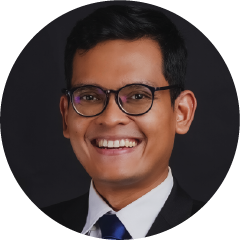
Doctor of Engineering, Singapore Institute of Technology
SMI-MaritimeONE Postgraduate R&D Scholar
Sharul is a Doctor of Engineering (DEng) candidate at Singapore Institute of Technology and a recipient of the SMI-MaritimeONE Postgraduate Scholarship. His research focuses on maritime decarbonisation and sustainability, as well as the modelling and simulation of maritime applications. His work aims to drive innovation and address critical challenges in the maritime industry by developing solutions that enhance vessel designs and operational efficiency, aligning the sector with global sustainability goals.
With a passion for both technology and maritime operations, Sharul is dedicated to advancing the industry through research that combines cutting-edge engineering with practical applications. His experience as a research engineer has enriched his skills and knowledge, providing valuable expertise that complements his academic work and enhances the practical application of his research.
Motivated by a desire to contribute meaningfully to the future of the maritime sector, Sharul is focused on exploring innovative solutions that can help navigate the industry's evolving landscape and its push towards a more sustainable and efficient future. Collaborative efforts with industry professionals and access to essential resources have greatly contributed to his academic growth and the practical impact of his work.

Head, Decarbonisation, Energy Transition and Innovation
RINA Singapore
Jan-Paul de Wilde has been in the marine industry for some 28 years of which the last 23 years based in Singapore. He is a naval architect by training and spent most of his career in ship design with Rolls-Royce Marine and Kongsberg Maritime prior to joining RINA in 2021.
Jan-Paul previously held positions in project management, project engineering, ship repair management and owner’s representation in the Netherlands, Norway, and Singapore.
In RINA, he is part of the ship classification business unit and responsible for the technical and regulatory advisory on maritime decarbonisation, the transition to alternative marine fuels and the associated innovation.
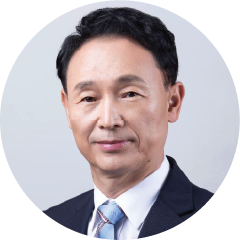
Professor Emeritus, Asia Pacific School of Logistics
Inha University, Korea
Dr Young-Tae (YT) Chang is a Professor Emeritus at the Asia Pacific School of Logistics, Inha University, Incheon, Korea. With over four decades of experience in maritime research, he has spent half of his career working for national think tanks and the other half in academia.
Dr Chang has published numerous papers in internationally refereed journals in transportation and logistics and has served as a guest editor for several journals. He has conducted extensive research on maritime and multimodal transportation, marine policy, and socio-economic analysis of ocean-related projects, acting as Principal Investigator (PI) or Co-PI on over 72 international and domestic projects.
He has also been actively involved in developing international networks for education and research, including as the Founding Secretary-General of the Global University 8 Consortium and a Founding Member of the Asia Logistics Round Table (ALRT). Additionally, he is a past President of the Korea Port Economic Association and served as the last President of the Korea Maritime Institute.
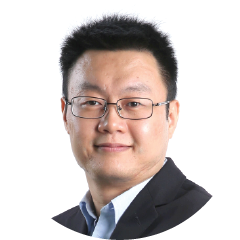
President’s Chair Professor in the School of Materials Science and Engineering, Nanyang Technological University; and
Centre Director, Maritime Energy & Sustainable Development Centre of Excellence
Dr Xu is the President’s Chair Professor in the School of Materials Science and Engineering, Nanyang Technological University (NTU) and a Fellow of the Academy of Engineering, Singapore. He serves as Director of the Maritime Energy & Sustainable Development Centre of Excellence, and the director of the Centre of Advanced Catalysis Science and Technology in NTU.
He received his PhD degree in Electroanalytical Chemistry and B.S. degree in Chemistry from Lanzhou University, China. His PhD training was received in Lanzhou University, Institute of Physics, CAS, and Brown University. He worked in State University of New York at Binghamton as a Research Associate and then in Massachusetts Institute of Technology as a Postdoctoral Researcher.
Dr Xu has received several awards such as Chun-Tsung Endowment Outstanding Contribution Award - Excellent Scholar at 2018 and the Zhaowu Tian Prize for Energy Electrochemistry by International Society of Electrochemistry (ISE) in 2019. He was elected as a Fellow of Royal Society of Chemistry (FRSC) in 2017. He serves as the president of ECS Singapore Section. Dr Xu is a Highly Cited Researcher by Clarivate Analytics, Web of Science since 2018. His research interests are focused on decarbonisation techniques, such as hydrogen fuel production, storage, and utilisation, materials recycle, as well as energy storage.
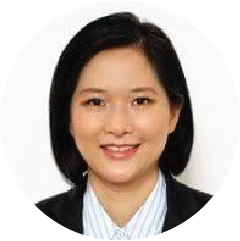
Head of Technology, Centre of Excellence in Engineering R&D
Kuok Maritime Group
Dr Sze Jia Yin is the Head of Technology at Kuok Maritime’s Centre of Excellence in Engineering R&D and Program Manager of the Coastal Sustainability Alliance (CSA). The Centre collaborates closely with R&D partners to foster innovation and co-develops solutions, as well as forming strategic partnerships with the maritime industries to drive the adoption of green solutions. Her responsibilities involve assessing and developing emerging technologies for maritime decarbonisation and sustainability. Since 2019, she has successfully led initiatives and trials aimed at advancing the knowledge and integrating decarbonisation solutions to support the transition towards zero-emission shipping.
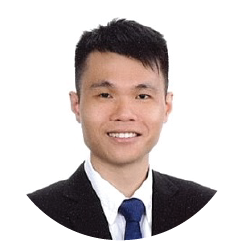
Assistant Professor & Assistant Chair (Students), School of Civil and Environmental Engineering, Nanyang Technological University; and Co-Director, Maritime Energy & Sustainable Development Centre of Excellence
Dr Yuen Kum Fai currently serves as an Assistant Professor and Assistant Chair (Students) at the School of Civil and Environmental Engineering, Nanyang Technological University, Singapore. He is also the Co-Director of the Maritime Energy & Sustainable Development (MESD) Centre of Excellence.
Dr Yuen has been recognised among the world’s top 2% most influential scientists by Stanford University. He has obtained over 1.6 million SGD in grants for AI- and maritime-related research initiatives. Additionally, he was awarded the 2019 Inauguration Grant, a prestigious award under the Singapore Teaching and Academic Research Talent Scheme in the Science, Technology, Engineering, and Mathematics (STEM) discipline
This presentation explores the transformative role of artificial intelligence (AI) and big data analytics in advancing maritime safety and health management for shipboard operations. It introduces a decision support system designed to predict, monitor and prevent accidents on ships through real-time risk identification and crew wellbeing assessments.
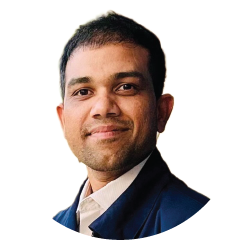
Scientist
Technology Centre for Offshore and Marine, Singapore
Dr Ravindra Babu Kudupudi is working as a Scientist at Technology Centre for Offshore and Marine Singapore (TCOMS) where we integrate research and industry expertise to co-create innovative concepts and solutions to address real world challenges. With over 2 years of experience, Ravindra's expertise is in the application of tools such as advanced computational fluid dynamics (CFD) to understand vessel performance, behaviour and response in different environmental conditions which was utilised for creating digital twin for electric harbourcrafts.
Before joining TCOMS, Ravindra held key positions at Sterling Technology and Technical Services Pvt. Ltd., as a marine warranty surveyor where they provide engineering, surveying and risk management services in marine, offshore oil and gas. He carried out structural design and engineering review for various offshore installations, and also carry out warranty survey for offshore and project cargo works.
Ravindra holds a Doctoral degree in Naval Architecture from IIT Kharagpur, India, and is a member of Society of Offshore Marine Warranty Surveyors (SOMWS). Outside of work, he is passionate about sports and actively support community involvement.
Maritime and Port Authority of Singapore (MPA) has set a target of net zero emissions by 2050 in line with Singapore’s national net zero ambitions. From 2030, all new harbourcraft operating in the Port of Singapore will have to be fully electric, be capable of using B100 biofuel, or be compatible with net zero fuels such as hydrogen. Fully electric harbourcraft (e-HC) is one of the solutions which is being currently tested. This transition contributes to reducing the environmental impact from the maritime industry. e-HC has limited range and endurance because batteries have lower energy density compared to traditional fossil fuel, and it requires careful design considerations and operational planning. Environmental forces like wind, waves, and currents need to be taken into speed and range performance prediction, as these forces would affect energy usage. However, optimising their operational planning for efficient operations remains a complex challenge, to maximise efficiency. The main goal of this study is to provide a one-stop solution for vessel operators, enabling them to accurately estimate voyage energy consumption by bringing together vessel hydrodynamic model and environmental predictions to aid efficient planning of voyages. This examines variations in energy usage of the e-HC that are influenced by real-time weather conditions.
The hydrodynamic digital twin represents a significant advancement in the maritime industry, particularly for fully e-HC. By leveraging digitalisation, this technology enables more efficient planning, operation, and maintenance, contributing to reduced environmental impact. Additionally, the use of fully e-HC has the potential to significantly reduces emissions, contributing to cleaner harbours and aligning with environmental sustainability goals. Despite challenges like data integration and the initial costs of technology adoption, the hydrodynamic digital twin offers a forward-looking solution for efficient and sustainable maritime operations.
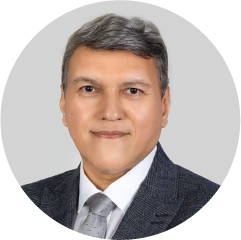
Senior IT Architect
Centre of Excellence in Modelling and Simulation for Next Generation Ports
Mr Muhammad Riza Marhaban is a senior software developer and solution architect with over 20 years of experience in IT and software development. A former Technical Evangelist at Microsoft and Microsoft MVP in Developer Technologies, Riza is a passionate technology enthusiast and autodidact. He actively keeps up with the latest developments in disruptive innovations across IT ecosystems, financial markets, and green technologies.
Riza joined the Centre of Excellence in Modelling and Simulation for Next Generation Ports (C4NGP) at the National University of Singapore 5 years ago and has since played a key role in developing various software projects for the research center. Currently, Riza is leading a project at C4NGP, focusing on the development of Digital Twin 2.0. This project utilises Parallel Discrete Event Simulation (PDES), cloud native, and explores Artificial Intelligence (AI) to optimise maritime port infrastructure and operations.
This presentation covers how Parallel O2DES (Parallel Discrete Event Simulation) enhances maritime port operations by integrating AI and Digital Twin technologies. Unlike traditional DES, which runs sequentially, PDES leverages multicore processors and HPC to run simulations concurrently, enabling real-time decision support for port activities like container shifts or optimizing vessel berthing. This approach allows ports to adapt quickly to dynamic changes in data, providing essential insights for fast, informed decisions.
With LLM/SLM integration, operators can interact such as with the interface to Terminal Operating System (TOS) via chat or voice, using models fine-tuned with Retrieval-Augmented Generation (RAG). This dynamic interaction enables scenario-based advice, latest information and knowledge, making the AI smarter with each simulation as it integrates real-time, historical, and simulated data. Singapore ports can benefit significantly by implementing these AI-driven Digital Twins, optimizing complex operations and improving efficiency and sustainability.
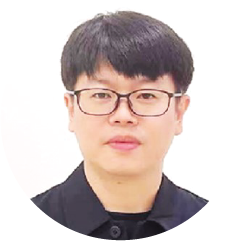
Senior Scientist, Department of Systems Science
Institute of High-Performance Computing, A*STAR
Dr Xiao Zhe is a research scientist at Institute of High Performance Computing, A*STAR and his expertise is in intelligent systems, systems science, big data analytics, AI and blockchain, and agent-based simulation and modelling systems.
He (co-)authored more than 70 papers in top tier journals and conferences. As the Principal Investigator or Co-investigator, he led and engaged in more than 10 industrial projects solving the common challenges in spatiotemporal data quality handling, knowledge extraction and decision support algorithms, together with efficient concurrent computing cluster design to push the models towards real world applications.
His studies align with the emerging trend of information systems being transformed towards better situation awareness and enhanced system intelligence and productivity, especially in maritime sector.
There are global trends toward cleaner port environments. Transit optimisation of fuel-based port service boats like harbour tugs has emerged as a critical task to reduce fuel consumption and carbon emission. In this presentation, a systematic research work with an innovative learning-based method, comprising a Reinforcement Learning (RL) model together with a deep learning based fuel consumption prediction model, are proposed to achieve fuel-saving transit for harbour tugs.
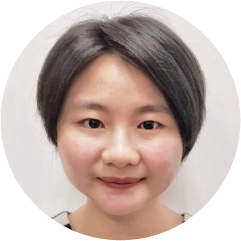
Research Fellow
Maritime Energy & Sustainable Development Centre of Excellence
Dr Yeoh Keat Ping is a Research Fellow at the Maritime Energy & Sustainable Development Centre of Excellence, Nanyang Technological University, where she focuses on sustainable marine fuels. She earned a BEng in Chemical Engineering with First Class Honors from The Hong Kong University of Science and Technology (HKUST), supported by a full tuition scholarship. Her outstanding academic performance was further recognised through four Dean’s List awards. Dr Yeoh also obtained her MPhil and PhD in Chemical and Biomolecular Engineering from HKUST, specialising in Energy Technology.
Throughout her academic career, Dr Yeoh has presented her research at several international conferences and published in top-ranked journals. She is a co-owner of two patents related to energy-saving technologies and greenhouse gas reduction. In recognition of her achievements, she received the HKUST RedBird Academic Excellence Award.
Professionally, Dr Yeoh has gained valuable experience working with a publicly listed utility company in Hong Kong and at a coal-to-chemicals plant in Inner Mongolia. This experience has significantly contributed to her work on sustainable marine fuels.
As the maritime industry strives for decarbonisation, methanol has emerged as a promising marine fuel due to its potential for reducing greenhouse gas emissions. However, the environmental benefits of methanol are heavily influenced by its feedstock and production pathway, which can vary widely. Carbon footprint assurance ensures that methanol contributes effectively to decarbonisation goals. Currently, administrative methods, such as the International Sustainability & Carbon Certification (ISCC), provide a standardised approach to verify the carbon intensity when methanol is supplied as a fuel.
This presentation explores an innovative complement to these administrative methods: fingerprinting of methanol based on its intrinsic properties. By analysing radiocarbon levels, organic impurities, and other indicators, we can potentially gain deeper insights into the origin of methanol fuel and the associated environmental impacts. These fingerprinting techniques may enhance the overall carbon footprint assurance framework. The presentation will delve into background studies on methanol production pathways, review relevant literature on radiocarbon, and present preliminary results from ongoing research, shedding light on how advanced fingerprinting could bolster the credibility and effectiveness of methanol as a marine fuel in the decarbonisation journey.
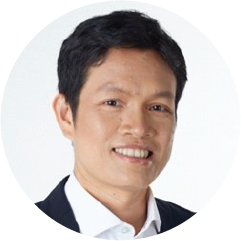
Senior Principal Scientist
Institute of High Performance Computing, A*STAR
Dr Vinh-Tan Nguyen is currently a Senior Principal Scientist and Innovation Technology Area Lead at the Institute of High Performance Computing (IHPC), A*STAR. In his ITA lead role, Vinh-Tan works with scientists and managers across functional departments in IHPC to develop and deploy advanced modelling and simulations techniques for marine and maritime applications. His research focuses on computational methods and numerical analysis, turbulence modelling, marine-offshore hydrodynamics, aerodynamics, CFD-based risk analysis and design optimisation.
Prior to his current appointment, he led research groups on fluid-structure interaction and computation for design and optimisation focusing on harnessing the power of high performance computing and modelling techniques for design and optimisation of engineering systems. He has wide ranging experience in leading grant and industry-funded projects in the areas of risk assessment for alternative fuels bunkering; design and optimisation of ship’s energy saving devices; floating offshore wind turbine; vortex-induced vibrations; etc.
Adopting alternative fuels like ammonia, methanol, and hydrogen to decarbonise energy and transportation sectors is vital in combating climate change. Recent successful trials of methanol and ammonia bunkering operations in Singapore demonstrate promising advancements in their use, however significant safety concerns persist, particularly understanding and mitigating ammonia's toxicity and methanol's flammability. This talk will present a comprehensive research program designed to tackle the safety challenges associated with handling these fuels. We will explore three critical areas: enhancing the understanding of two-phase release dynamics to improve plume dispersion models; developing coupled models that integrate atmospheric and oceanic data, validated through experimental campaigns tailored to tropical conditions; and creating hybrid models for rapid leak detection and emergency response. The research programme will prioritise the development of models to quickly build prototypes of operational tools by integration of different sub-models across work packages. The developed models will be validated with existing data from literature and on-going experiment from various sources in the first phase. The ultimate objective is to develop and enhance digital technologies for planning, preparedness, mitigation and emergency response with model-based decision support systems in handling of alternative fuels in Singapore port water.
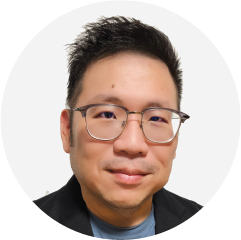
Senior Manager
Centre of Excellence in Maritime Safety
Mr Lee Deng Siong currently leads an applied research team at the Centre of Excellence in Maritime Safety (CEMS), focusing on advancing simulation technologies and solutions for application and adoption in the maritime industry. This includes maritime simulators as well as immersive technologies.
Prior to joining CEMS, Deng Siong accumulated 24 years of professional experience in engineering and technical team leadership. He has held diverse roles, ranging from Mechanical Design Engineer to Engineering and Design Leader. His career includes spearheading significant department initiatives, both technical and non-technical, and he is the holder of several design patents.
Deng Siong has developed technology and product solutions across various industries, including consumer electronics at Dyson and Panasonic, medical devices at ResMed, and printing and imaging products at Venture Corporation.
With the emerging need of new fuels in maritime industry, the integration of immersive technologies, such as Virtual Reality (VR), is revolutionising the training landscape for new fuels handling, which involves considerably higher risks than traditional fuels.
The presentation will share insights on what Immersive technologies can offer and enable trainees to engage with complex fuel handling procedures in a safe and controlled, and yet realistic environment.